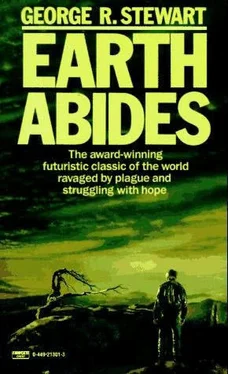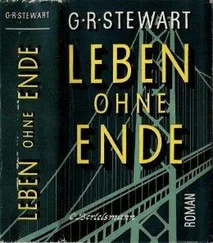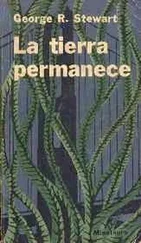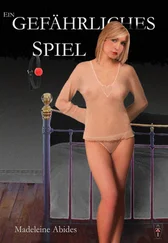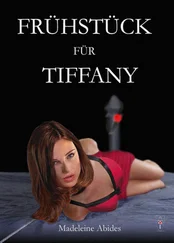Now he could see the car far ahead; he walked steadily, husbanding his stones, looking backward only now and then, depending upon Princess to give warning, if a sudden attack should come from behind. He caught a glimpse of the Dane standing in a gap between bushes, a magnificent dog, heavy as a man. With a loud yap Princess made a suicidal dash at the great. He sprang toward her, and at the same time the collie dashed out of the bushes on the left. But Princess doubled with the agility of a rabbit, and the two larger dogs collided in their rush, and caromed off each other, snarling. Princess came back again to brush against his legs, her tail drooping. Now the Dalmatian crossed into the road ahead and stood there, red tongue lolling out. Ish continued his steady pace. The Dalmatian was the least fiercesome looking of the dogs, and Ish felt that he might brave that one. A handsome collar still circled the spotted neck, a metal dogtag dangling from it. Uneasily, Ish saw that it was thin, with ribs showing, and yet did not look in too bad condition. Evidently on rabbits or calves or on whatever the pack might run down or find as carrion, the dogs were managing to get along. He hoped that they had not yet been driven into cannibalism,—and that their interest in Princess might be somewhat playful—not to mention their interest in a stray man. At twenty feet distance, without slacking his steady pace, Ish raised his arm, threatening. The Dalmatian suddenly dropped tail between legs, and slunk off. The car was close now, and Ish relaxed.
He got to the car, opened the door for Princess to jump in, and stilling a last-moment panicky impulse to scramble, he himself stepped in behind her with dignity. As the door clicked shut, he had an immediate feeling of safety. He let his hand close comfortably around the solid handle of the hammer which lay at his feet. He felt sick with the reaction.
Looking out from the car, he saw only the handsome Dalmatian, sitting at the side of the road. Now being safe, Ish felt his attitude quickly changing. Actually the dogs had done him no harm, and indeed had not really even threatened him. During a few minutes he had thought of them as wild creatures thirsting for his blood. Now, they seemed a little pitiful, as if they might merely have been seeking the companionship of a man because of what they remembered long ago—of food laid out in dishes, of crackling logs in the fireplace, of a patting hand and a soothing voice. As he drove away, he wished them no bad luck, but rather hoped that they would manage occasionally to snap up a rabbit or pull down a calf.
The next morning the whole matter had even a more comic aspect when he became aware of Princess’s changed condition. Not wanting any puppies, he shut her in the basement.
Yet he could not be sure, and he decided if there was one way rather than another by which he did not care to die, it was to be torn to pieces by the teeth of dogs. After that he made it a rule always to walk in the hills with a pistol strapped at his belt, or else with his rifle or shot-gun….
Two days later the problem of dogs had come to seem a petty one compared with the problem of ants. They had already troubled him, but now they seemed to arrive from all directions at once and to cover everything. Even in the old days, he could remember that constant battle—his mother’s cry of dismay at finding a line of them in the kitchen, his father’s irritation, and the constant debate about whether they should summon the ant-man or try to handle the situation themselves. But now the ants were a hundred times worse than ever before. No longer did ardent householders combat them in the houses, and even wage offensive war against them in their own strongholds. Now after a few months their powers had brought their numbers to climactic proportions. Probably, also, they had found great supplies of food somewhere.
They streamed everywhere. Ish was sorry not to be a good enough entomologist to ascertain what really was happening and to work out the history of this overpowering increase. But in spite of some investigations, he never even discovered for certain whether the ants were spreading outward from some great center of development or whether they were breeding equally all over the city.
Their scouts ranged everywhere. Suddenly he had to become a furiously meticulous housekeeper, for the slightest scrap of food or even a dead fly brought an immediate stream of ants an inch wide, overwhelming the insignificant prey which had attracted them. He found them wandering upon Princess’s coat like fleas, although apparently they did not bite. He found them in his own clothes. Once in the early morning he awoke with a horrible dream because a stream of ants was pouring across his own cheek, bent to some goal which he never discovered.
Actually the house was only alien ground into which they made raids. Their real strength lay outside. Their hills seemed now to be everywhere. He could not overturn a clod without having ants swarm out by thousands from burrows that pierced the earth. They must be annihilating all the other insects, he thought, destroying their means of subsistence even if not killing them. He got bottles of ant-poison and DDT spray from the drug store, and tried to make the house into a hostile island, but the pressure of numbers was so great from the outside that they streamed across his spray. Doubtless all the trespassers inevitably died, but the death of even millions of individuals would not affect such numbers appreciably. He tried to estimate how many ants must be living on this one city lot, but he came out with an unbelievable answer in billions. Had they no natural enemies? Had they broken all limits of control? With the removal of man were they now destined to inherit the earth?
Yet, after all, they were only the little hustling ants which had irritated and plagued California housewives. Making some investigations, he found that actually the range of the plague did not extend appreciably beyond the limits of the city. In some way, like dogs and cats and rats, these ants had come to be domestic animals dependent upon the activities of man. This gave him a certain hope. If he had only been seeking his ease, he would have left the city, but he preferred, even at the cost of some discomfort, to watch what was happening.
Then one morning he realized suddenly that he had not noticed any ants. He looked around carefully, but he could not see any of their scouts. He dropped a bit of food on the floor, then went away about some other business for a few minutes. When he returned to the scene of his experiment, the food lay there without an ant upon it. Curious, realizing that something had happened, he went outside. He turned over a clod of dirt, and no ants swarmed from their holes. He hunted carefully. Here and there he discovered a few stragglers wandering about aimlessly, but they were so few that he could have counted them individually. He hunted still further. He could find no dead bodies of ants. They had simply vanished. Perhaps, if he had the skill in their ways to dig down and find their nests; he would have discovered that they were lying dead in their billions. But again he could only wish that he knew more of their manner of life and could carry on an investigation.
He never solved the mystery, but he had little doubt as to what had happened. When any creature reached such climactic numbers and attained such high concentration, a nemesis was likely to fall upon it. Possibly the ants had exhausted the supplies of food which had led to this tremendous increase of numbers. More likely, some disease had fallen upon them, and wiped them out. In the next few days he smelled, or thought he smelled, a faint all-pervading putrescence, as if from the decaying bodies of billions of ants….
One evening shortly afterward, he sat reading, and after a while began to feel hungry. He went to the kitchen, and rummaged in the refrigerator for some cheese. Happening to glance at the electric clock, he was surprised to see that the time was only nine-thirty-seven. He had thought it was later. On his way back to the living-room he took a bite of the cheese, and glanced at his wrist-watch. The watch-hands stood at ten-nine, and he knew that he had set the watch by the clock within twenty-four hours.
Читать дальше
